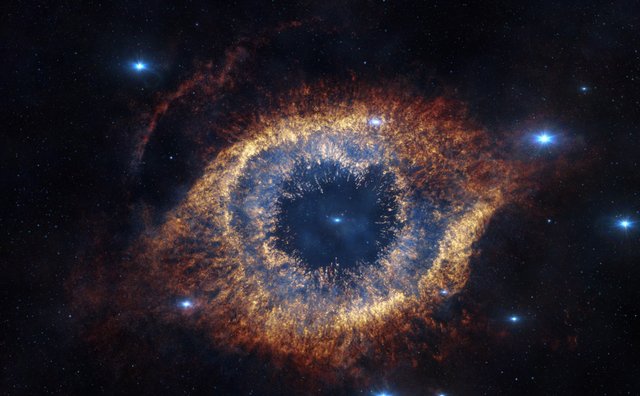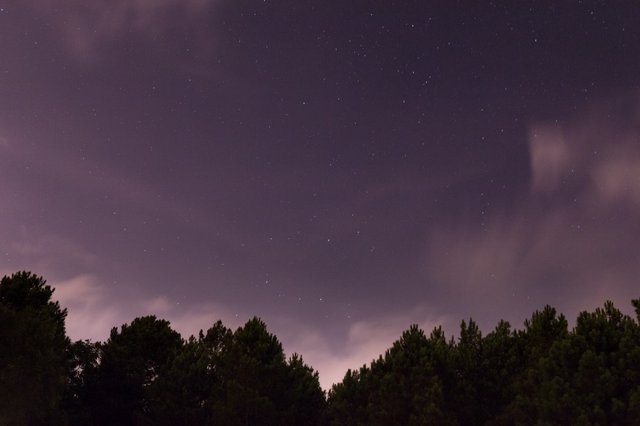Our Depressing Universe
We can never visit 99.99999999999% of the observable universe.
Wait, what? Why? I hear you say.
Well, galaxies are clustered together in groups, and our galaxy is a part of a group imaginably called the local group which consists of about 54 galaxies, and is 10^23 meters wide, or about 10 million light years.[1]
The catch? We can never leave the local group.
That doesn’t sound too bad; 10 million light years is quite a lot of room. We don’t need more than that; do we?
Maybe not, however, the observable universe is 46.6 billion light years across.[2]
This means we can only reach 0.00000000001% (that’s 10 zeros) of the universe; the other 99.99999999999% will be forever out of reach for humankind given our current understanding of physics.
But just why are we trapped in the local group?
The galaxies in a cluster are bound together by gravity; it’s said they are “gravitationally bound”. In other words, they don’t wander off into the abyss akin to the planets in our solar system that all orbit the sun.
In between galaxy clusters, here among the local group, there’s a vast space of emptiness (or near emptiness), and since the universe is expanding, the empty space increases.
While the gravity inside the local group is rich enough to bind together the galaxies in there, the gravity between the clusters of galaxies is not strong enough to bind the groups together, so the more the universe expands, the farther the distance between the groups.
The reason we see these clusters is due to quantum fluctuations. An informal definition of quantum fluctuations is:
The temporary appearance of energetic particles out of empty space, as allowed by the uncertainty principle.
So basically non-massless (due to E=mc^2) particles being able to appear out of nowhere and quickly disappear again due to the uncertainty principle. The above is terribly simplified, but mostly accurate.
At the beginning of time — at the big bang — specifically the Planck epoch which is the closest you can get to the beginning of time, the universe is 1 Planck time old, and spans a region of 1 Planck length, or about 10^(−35) meters.[3]
At this point, quantum fluctuations occurred, and continues to occur when the universe rapidly inflates in an event known as the “cosmic inflation”. Since the inflation happens so quickly, the energy fields caused by the quantum fluctuations are inflated as well creating an uneven energy distribution; now not at the atomic scale, but at a cosmic scale. The uneven energy distribution did, overtime, create energy variations that would attract matter, and, eventually, form the galaxy clusters in which the galaxies are gravitationally bound.
So the galaxy clusters are really cosmic scale quantum fluctuations inflated during the big bang.
“But that’s just gravity, right? We don’t need gravity to send spaceships to other galaxy clusters; in fact, it will be helpful not having to fight gravity, right?” You say.
Well, sort of.
It’s generally well known that the universe is expanding, and accelerating. This expansion is homogeneous which is why it seems as if we are in the center of the universe, and everything is expanding away from us.
The acceleration of the expansion is due to dark energy which is, well, that’s about what we know about it, we call it dark because we don’t know what it is, but we can observe its effects.
This means that if we were to send a spaceship toward another local group we would never arrive there as the speed at which the groups are moving away from each other at speeds are too great; sometimes faster than the speed of light.
Wait? How can this be possible; doesn’t special relativity prevent this? Yes, special relativity does prohibit objects from moving faster than the speed of light relative to a local reference frame where spacetime is treated as unchanging. However, this is not the case with the universe’s expansion where the spacetime curvature becomes important.
So special relativity allows for objects to separate faster than the speed of light; that is when the definition of distance is the sum of all the the local comoving distances, basically the distance with the expansion of the universe factored out, all done at the same proper time.[4]
The fact that we can only ever visit less than a 10 billion of a percent of the universe, and just that there’s a limit to how far we can go, is not only depressing, but also a little frightening to think about — that there’s so much information that we can never know, and so many places we can never be.
Wait, there’s more.
Because light spreads in a sphere shape, the light intensity decreases proportional to 1/A, and since the area is proportional to the radius squared, the light falloff is an inverse parabola.
This means eventually the other groups, or clusters, will be so far away that we can no longer see them because too few photon will hit Earth for us to detect them, leading to the night sky being a lot less impressive.
We will end up isolated in our little bubble — that is the local group, and future generations will not only be imprisoned in the local group, but may not even know that there’s anything outside the local group which will now bear the name “the observable universe”.
And just as you thought it couldn’t get more depressing, it became more depressing.
But what if we can be content with being limited to the local group?
Well, things are about to get a whole lot more depressing.
The Milky Way consists of about 100 thousand million stars.[5] To keep the stars together, it’s has been theorized that there’s a black hole in the middle of our galaxy.[6] In fact, a generally accepted theory states that there are black holes in the middle of nearly every galaxy.
The gravitational pull of the galaxies inside the local group, and most, if not all, other galaxy clusters, will eventually cause the galaxies to merge into one big galaxy, the “Milkdromeda Galaxy” named after the two largest galaxies in the local group. This event is set to occur in about 4 billion years.[7]
Furthermore, the Milkdromeda Galaxy will also have a black hole which will at one point eat the Milkdromeda Galaxy leaving just a black hole left from which not even a light escapes.
But the black hole is not the ending as it too will eventually evaporate due to Hawking radiation leaving us with nothing but electromagnetic radiation.
The universe is depressing.
Further Reading
- Kurzgesagt on the same topic.
- More depression by me.
- Any and all of the sources.
Footnotes
[1] Local Group — Wikipedia
[2] Observable universe — Wikipedia
[3] Timeline of the Big Bang
[4] Metric expansion of space — Wikipedia
[5] How many stars are there in the Universe?
[6] [astro-ph/0308342] Black Holes, Galaxy Formation, and the M_BH-sigma Relation
[7] Andromeda–Milky Way collision — Wikipedia
This article originally appeared on Medium


This post has been ranked within the top 25 most undervalued posts in the first half of Apr 13. We estimate that this post is undervalued by $1.11 as compared to a scenario in which every voter had an equal say.
See the full rankings and details in The Daily Tribune: Apr 13 - Part I. You can also read about some of our methodology, data analysis and technical details in our initial post.
If you are the author and would prefer not to receive these comments, simply reply "Stop" to this comment.
Crazy to think that there will come a time when we can't even see anything beyond the local group, let alone travel there.
For this reason our current knowledge of galaxies beyond the local group must be preserved not merely for future generations, but for all future intelligent life in the Milky Way. We have to a) not wipe ourselves out and b) not lose the data we currently have and are recording and c) take copies of the data to other star systems before the death of the Sun.
Damn, one of the most interesting articles I've read in a long time. Thank you
Glad you enjoyed it.
Hello, @kasperfred,
I was searching Steemit today for articles about the universe, and came across yours. I'm stopping by just to mention that when I was a teenager, I once made a long list of things I wanted to do and experience in my life. I then became very depressed as I realized that my life was not long enough for the task.
Since then, thanks to a growing faith in Jesus, who I believe to be the creator-God of the universe, I am no longer depressed. He has promised me life in a new and perfectly healthy body that will never die.
And so, by his kindness I plan to travel and see the entire universe.
There is an open invitation to everyone to believe in Jesus and share in this endless life. In John's book, we read this:
I invite you to read and consider John's book, and possibly come to share in this hope with me. :D
Thank you for your intriguing article.
😄😇😄
